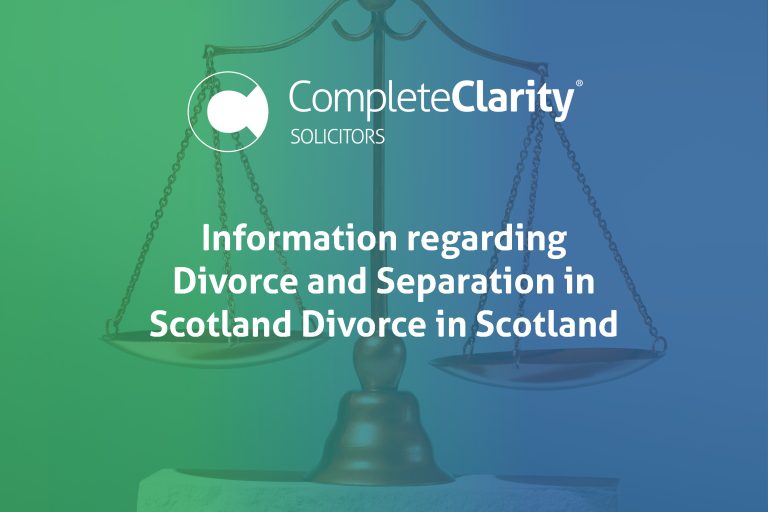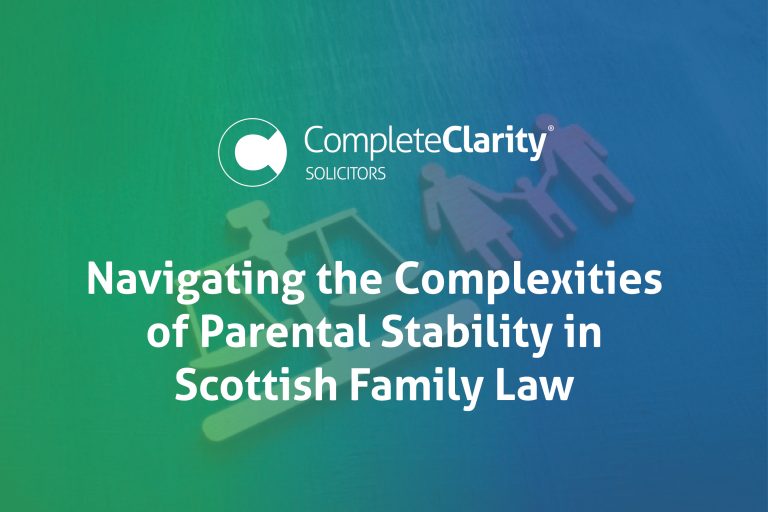The legislation governing a divorce’s financial settlement can be extremely complicated. The Court’s broad discretion in selecting who receives what is one of the key causes of this. There is no precise calculator that can tell you, depending on your circumstances, what a reasonable financial settlement on divorce should be, other than child support. This is done on purpose because every instance, every family, and every set of circumstances will probably be unique. In contrast to, for example, criminal law, the uncertainty in family law is intentional and is seen favorably.
The law is extremely vague in that it only lists the factors that the court may take into account. The Matrimonial Cases Act of 1973’s Section 25 is the source of this list.
It can sometimes be useful to look at earlier judgments made in England and Wales cases to see how the courts have used the Section 25 considerations. Every case, meanwhile, is unique, and prior examples typically only offer a general framework.
The truth is that there aren’t many strict guidelines for determining who receives what in a divorce. The benefit of this is that the Court still has a lot of discretion to issue any judgment it sees fit based on the unique facts of each case.
1. Be sure to defend your position in divorce right away.
It is crucial that you defend your stance as much as you can at the beginning of any separation. This has to do with assets, liabilities, savings, pensions, and enterprises.
When deciding how to safeguard ownership stakes in real estate that is jointly or solely owned by one party, care must be taken. To change beneficial ownership, register notices, or even just your correspondence address, you might need to take action at the Land Registry.
Bank accounts, other investments, and either party’s ability to withdraw money or increase overdrafts should all be taken into consideration. When it comes to pensions, undertakings or other forms of protection may be required, especially when one partner is over or on the verge of turning 55. You might need to update your will or consider any joint life insurance.
2. Correctly value the assets of the divorce financial settlement
Getting accurate appraisals for all assets is another crucial factor.
Family homes are frequently the assets with the highest value, therefore it is crucial that the appraisal is accurate—especially in cases when the property may be held by one party and is not being sold. To determine the worth, one should first obtain many market appraisals. If this makes it impossible to agree on a valuation, hiring a reputable chartered surveyor with experience may be an option to ensure an accurate valuation.
It is always sane to take into account a pension actuary who can offer a fair assessment of pension rights if there are any pensions involved. If there are any businesses, it is advisable to ask a trustworthy independent accountant for guidance on the firms’ valuation, liquidity, and tax implications.
3. Avoid having too much faith.
Before agreeing to any financial terms of a divorce, it is crucial to ensure that there has been an exchange of financial disclosure. It is appropriate to ask for financial evidence to be disclosed, and any indication that the other party thinks this isn’t essential should be taken as a red flag that they might be keeping something from you. Without complete transparency, you run the risk of accepting an unfair settlement and losing out on your fair part of the assets.
To ensure that you are familiar with the law and any pertinent issues that need to be taken into account, you should also make sure to seek your own independent legal advice on any proposed settlement. If the other side tries to persuade you and tries to stop you from getting your own lawyer, don’t let them.
4. Consider what approach is most effective for YOU when you get a divorce!
Do not forget that no two divorces are the same. Although you might have friends, relatives, or coworkers that offer you advise based on their own experiences, it’s possible that their situation was completely different from yours and the advice they received wouldn’t be applicable in your case.
It’s critical to seek legal counsel from a reputable, experienced attorney if you want to create a plan that fits your needs and that you are content with.
5. Make future plans.
Regardless of your age, it’s crucial to take seriously considerations for future milestones. By giving these matters early consideration, you can make sure that any settlement will take your requirements into account both now and in the future.
Children growing up and leaving the house and how that will affect your income and housing, what should happen to maintenance if you were to cohabit in the future, and how you would meet your financial demands upon retirement are a few topics you may need to think about.
Although it is impossible to foresee every future occurrence, some milestones are more likely than others, and planning for them early on after separation should guarantee that you are prepared for the majority of potential outcomes.
Contact our family law solicitor
Our solicitors can help you get divorced without going to court if possible and reach a financial agreement that is not beneficial for just one spouse, but both. The financial order will depend on the circumstance and that often is complicated to understand on your own. Get legal help from our solicitors and reach an agreement during your divorce or separation. Contact us today.
- Exploring Shared Child Custody in Scotland: Is a Father Entitled to 50/50 Custody?- Child Arrangements
- At what age can a child choose which parent to live with in Scotland?
- What is a c100 form family law Scotland – Solicitor
- Prioritising the Welfare of Children Scotland solicitor
- Prenuptial agreements are essential for safeguarding your assets during a divorce in Scotland
- What to expect during the initial phase of the divorce process Inspiration to rewrite Solicitor Scotland
- A child’s right to residence and contact – Child Law Solicitor
- Everything you need to know about surrogacy arrangements in Scotland
- Can a parent leave everything to one child in Scotland? understanding Scottish inheritance laws
- Demystifying divorce and dissolution Solicitor Scotland










